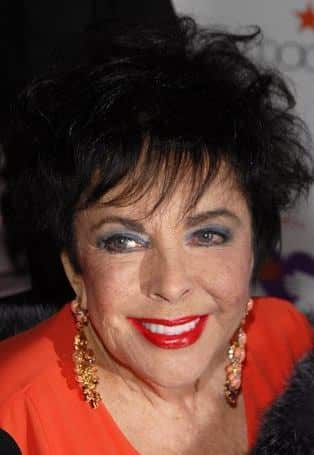Elizabeth Taylor, a tireless campaigner for HIV-positive people and against Aids, has died

Dame Elizabeth Taylor died of a heart attack in Los Angeles on the morning of 23 March 2011. She was 79 years old. Her four children were with her, but none of her seven husbands. Her son Michael Wilding announced a few hours after her death: "My mother was an extraordinary woman who lived her life with great passion, humour and endless love. Although her loss is painful for those of us who were so close to her, we will always know that the world is a better place because Mum lived. Her contribution will be remembered."
He is right. And not because his mother was the biggest female film star in the world for a good three decades, won two Oscars and financed the retirement of several generations of tabloid journalists with her private life. More importantly, she was perhaps the most important celebrity AIDS activist ever. There were and probably are hundreds of thousands of HIV-positive men whose lives were or are better because Elizabeth Taylor stood up for them.
After her friend and colleague Rock Hudson died of Aids in 1985, the actress and two doctors founded the "American Foundation for AIDS Research (amfAR)", organised the first AIDS benefit with Shirley MacLaine, Burt Lancaster and Burt Reynolds, which raised over a million dollars, and spoke out openly against the American government's blockade attitude in the fight against the disease. A short time later, she transferred a large part of her private fortune to the "Elizabeth Taylor HIV/AIDS Foundation"which was not concerned with research, but mainly with the care of AIDS patients.
Over the next 20 years, Taylor raised an estimated 150 million dollars for and with these two organisations for the fight against AIDS and research into the disease. She campaigned in the American media for the distribution of disposable syringes to drug users, the funding of combination therapies and education about condom use among teenagers. When talk show hosts wanted to know whether HIV-positive mothers could have healthy children, they invited Elizabeth Taylor on just as much as when she was a vociferous supporter of gay marriage or adoption rights for homosexual couples. She was loud, demanding, uncomfortable and looked like a living legend. She was one of the really good ones.
"The men who stayed with me the longest were all gay. And when they started to die, what else could I do but fight with them and for them," the diva once explained her tireless efforts. For this, she was raised to the peerage by the Queen of England in 1999. Elizabeth Taylor became "Dame Elizabeth, Commander of the Order of the British Empire".
By then, some gay men had long since canonised her. On the anniversary of Taylor's death, the US writer Armistead Maupin wrote on his website: "When I met her again in a hospital in the darkest hours of the AIDS epidemic, I said to her: 'In my neighbourhood, we call you Saint Elizabeth. I meant that name back then. And I still do."
The foundation that bears her name will continue to do good in her name, especially as it will have a prominent place in Taylor's will. But Taylor has long since raised children in her spirit. These include Sharon Stone and Elton John as well as Susan Sarandon and Barbara Streisand. The latter left the following message on her Facebook profile today: "The end of an era! But she has made sure that she leaves something behind that is more important than her fame or her beauty." True enough. Elizabeth Taylor is missing.
(pasch)
The AmFAR Tribute for Elizabeth Taylor










